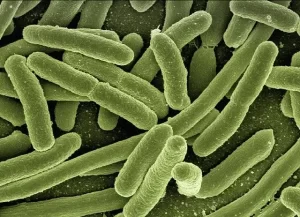How does sugar destroy gut bacteria and contribute to obesity?
- Did Cloud Seeding Unleash a Deluge in Dubai?
- Scientists Identify Gut Bacteria and Metabolites that Lower Diabetes Risk
- OpenAI’s Model Matches Doctors in Assessing Eye Conditions
- UK: A Smoke-Free Generation by Banning Sales to Those Born After 2009
- Deadly Mutation: A New Monkeypox Variant Emerges in the DRC
- EPA Announces First-Ever Regulation for “Forever Chemicals” in Drinking Water
How does sugar destroy gut bacteria and contribute to obesity?
- Red Yeast Rice Scare Grips Japan: Over 114 Hospitalized and 5 Deaths
- Long COVID Brain Fog: Blood-Brain Barrier Damage and Persistent Inflammation
- FDA has mandated a top-level black box warning for all marketed CAR-T therapies
- Can people with high blood pressure eat peanuts?
- What is the difference between dopamine and dobutamine?
- How long can the patient live after heart stent surgery?
How does sugar destroy gut bacteria and contribute to obesity?
Sugar can contribute to metabolic diseases such as diabetes by causing disruption of the gut microbiome, a new animal study suggests.
The new findings pinpoint how certain gut bacteria protect people from the harmful effects of a high-fat diet, and how dietary sugar disrupts these protective mechanisms.
It’s certainly not big news that a high-fat, high-sugar diet can cause all sorts of health problems.
But as scientists learn more about the ways in which the trillions of bacteria in our guts affect our overall health, we’re also gathering some unique insights into how poor dietary choices actually lead to specific health problems.
In the new study, the researchers first focused on the effects of a high-fat, high-sugar diet on the microbiome of mice, and also on a specific type of immune cell.
These immune cells, called Th17, are a specialized subset of T cells used to help protect the gut from certain disease-causing bacteria.
Low levels of Th17 cells are associated with metabolic diseases and inflammatory conditions.

Ivaylo Ivanov, lead researcher on the project, said: “The molecules produced by these immune cells slow down the absorption of ‘bad’ lipids in the gut, and they reduce inflammation in the gut. In other words, they keep the gut healthy and protect the body from absorbing it. Pathogenic lipids.”
So what happened to Th17 cells in the guts of mice when fed a high-fat, high-sugar diet?
These animals rapidly developed several hallmarks of metabolic disease such as weight gain, glucose intolerance, and additionally displayed a reduction in intestinal Th17 cells.
But more specifically, the researchers found that the reduction in Th17 levels was due to diet-induced changes in the gut microbiome.
Bacteria known to promote Th17 were replaced by other types of gut bacteria.
And sugar in particular appears to increase the number of harmful gut bacteria and ultimately lower Th17 levels.
Interestingly, Ivanov noted that the fat diet did not lead to negative metabolic effects as long as the animals retained high levels of gut bacteria known to induce Th17.
“Sugar eliminates the filamentous bacteria, so the protective Th17 cells disappear,” Ivanov said. “When we fed mice a sugar-free, high-fat diet, they retained intestinal Th17 cells and were completely protected from developing obesity. and prediabetes, even though they eat the same number of calories.”
Yet any metabolic health benefits gained by removing sugar from the mice’s diet were only apparent in the presence of Th17-inducing gut bacteria.
Without this specific microbial makeup, animals on an adjusted high-fat, low-sugar diet still gained weight and developed metabolic syndrome.
“This suggests that some popular dietary interventions, such as minimizing sugars, may only be effective in those who have certain groups of bacteria in their microbiomes,” Ivanov added.
According to Ivanov, some people may benefit from probiotics that help boost Th17-inducing gut bacteria levels.
But because mice have a different microbiome than humans, it’s unclear exactly what types of bacteria are optimal, and even with this knowledge, targeted probiotics will only work if a clinician can determine that a person needs these specific bacteria Only useful in the case of microorganisms.
Or the most obvious takeaway from these findings is that one of the ways that dietary sugar may cause metabolic problems is by altering Th17 levels in the gut.
In the future, Ivanov speculates, Th17 will be used directly as a therapeutic target, rather than as an intermediary trying to regulate bacteria.
“Our study highlights that complex interactions between diet, the microbiome and the immune system play a key role in the development of obesity, metabolic syndrome, type 2 diabetes and other diseases. It shows that for optimal health, it is important to The trick is not only to change your diet but also to improve your microbiome or gut immune system, such as by increasing Th17 cell-inducing bacteria,” Ivanov said.
How does sugar destroy gut bacteria and contribute to obesity?
(source:internet, reference only)
Disclaimer of medicaltrend.org
Important Note: The information provided is for informational purposes only and should not be considered as medical advice.



